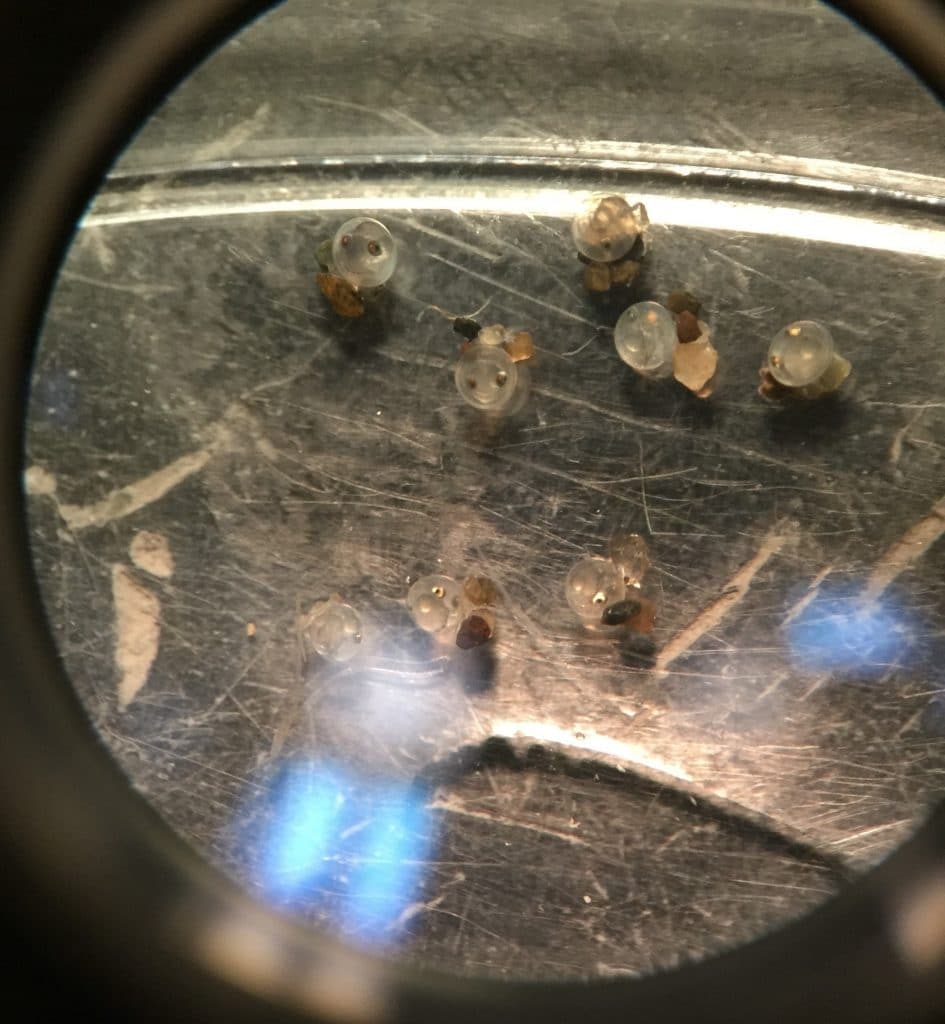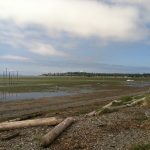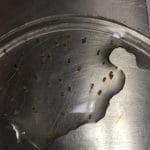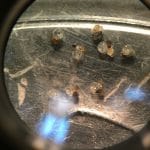

Forage fish surveys must be conducted 72 hours prior to any type of construction in or near the water. These surveys are typically conducted when applying for a Hydraulic Project Approval (HPA) through the Department of Fish and Wildlife. Building or repairing a pier, dock, or float, for instance, typically warrants an HPA, and with that comes a forage fish survey. The survey is conducted to determine if the beach has actively spawning forage fish on it or not. In order for construction to proceed, the forage fish survey must come back as showing no presence of spawning activity on the beach.

Our region has three different forage fish species of concern; Surf Smelt, Pacific Sand Lance, and the Pacific Herring. These fish are an important food source for our local salmon populations, nearshore birds, and marine mammals, and play a crucial part in our marine food web. Without them, shorebirds, salmon, orca, and all other marine life would suffer. For this reason and more, it is crucial that we protect their habitat, which is constantly being threatened by the likes of new developments near shorelines, loss of riparian vegetation cover, and a change in sediment supply and transport.

Chances are if you are thinking about working on or near the shoreline, you have already applied for an HPA. If so, a WDFW habitat biologist will assist you with that process and provide you a list of qualified biologists who perform forage fish surveys. By conducting a forage fish survey 72 hours prior to construction, we gain insight into the times and locations of spawning events. This information can then be used to determine if and when construction nearby may proceed. Without conducting a survey prior to construction, we have no way of knowing whether or not we are impacting forage fish spawning habitat.
If you are in need of these services, contact Peninsula Environmental Group today. Our qualified biologists are certified by the Department of Fish and Wildlife to perform these
surveys. We can be the piece of the puzzle that gets you on the way to completing your nearshore projects.